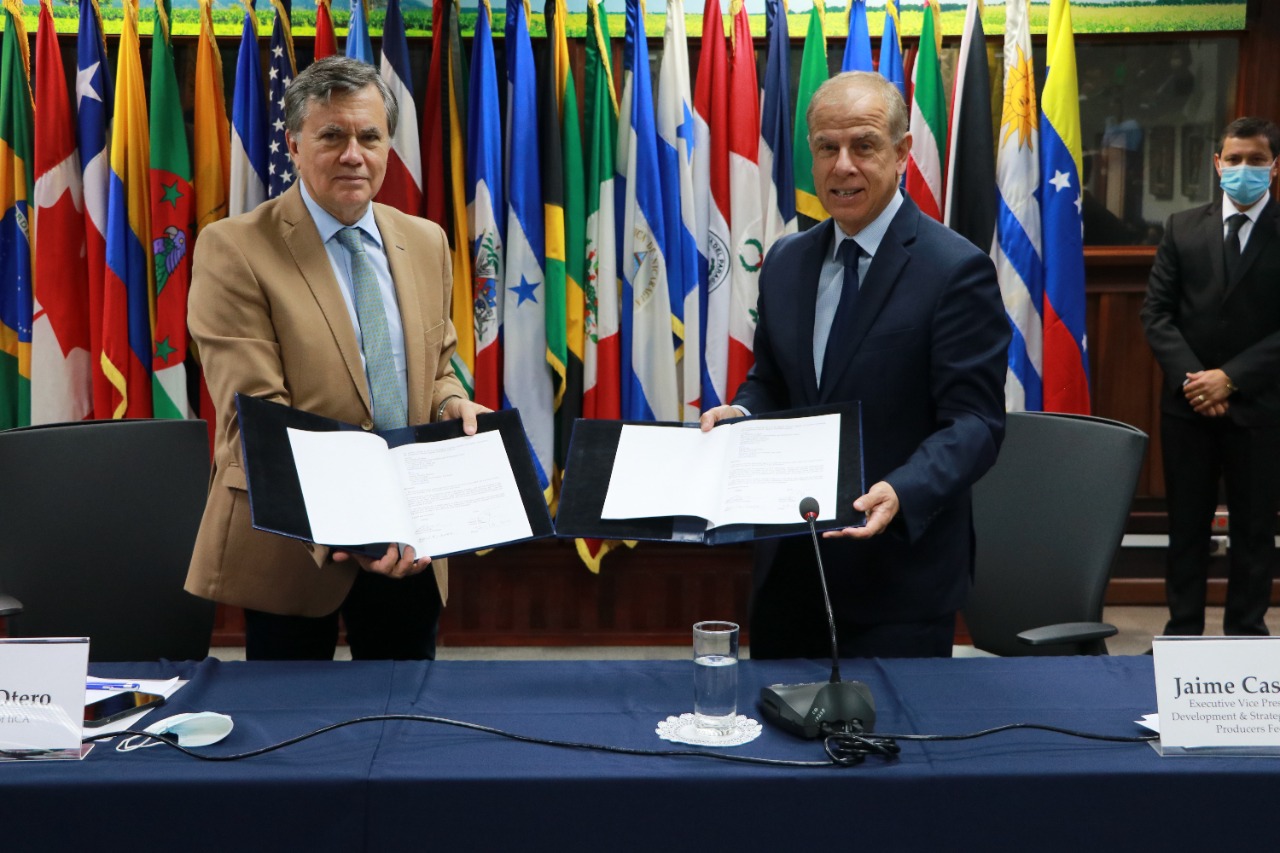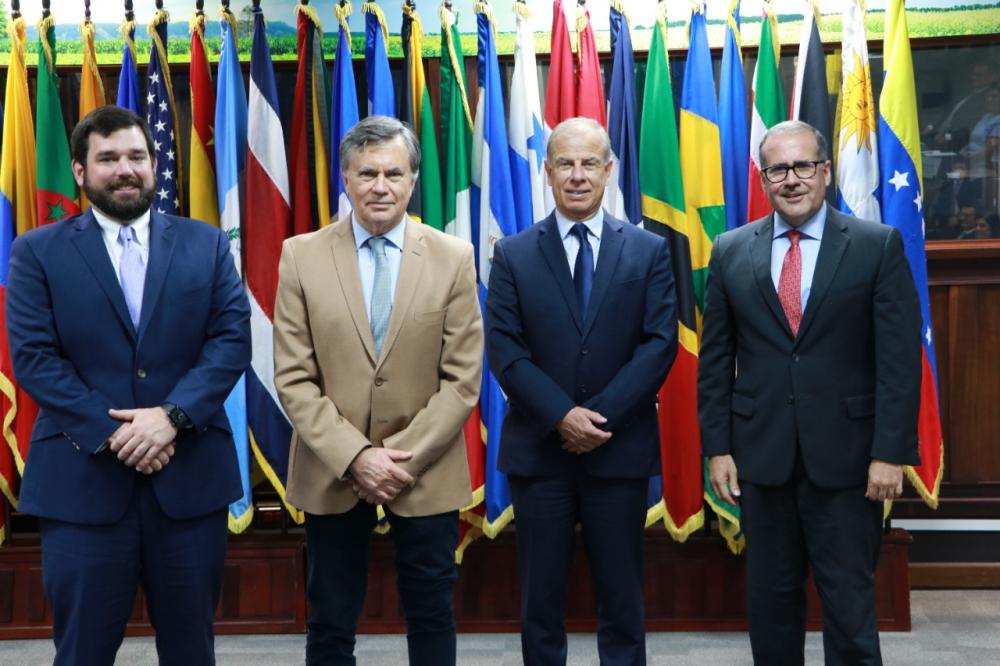The two institutions have maintained a partnership since 2019 to share best practices for sustainable productivity based on scientific evidence.

San Jose, 6 April 2022 (IICA) – The U.S. Dairy Export Council (USDEC) and the Inter-American Institute for Cooperation on Agriculture (IICA) will implement actions to strengthen the development and implementation of standards in this key sector of the food industry, enhance production capacities and generate greater recognition of the fundamental role played by the livestock sector in the agrifood systems of Latin America and the Caribbean.
The organizations expanded a previous technical cooperation agreement to follow up on matters addressed at the United Nations Food Systems Summit 2021, such as the need to share science-based best practices to boost sustainable productivity.
“As a region, we are stronger when we speak with a single voice. It is therefore crucial to work together to harmonize science-based standards in the areas of health, safety, sustainability and quality”, explained Manuel Otero, Director General of IICA.
Jaime Castañeda, Executive Vice President of USDEC, noted that IICA has long been a leader in the Americas, providing technical support and expertise in the field of agriculture.

“Within the current context, IICA is in the perfect position to continue to lead and to provide countries across the region with tools and resources to ensure that decisions made are based on science”, remarked Castañeda.
The organizations signed their first technical cooperation agreement in 2019, when now-U.S. Secretary of Agriculture Tom Vilsack was at the helm of the Council.
USDEC, which was founded in 1995 and comprises 115 companies representing 80% of U.S. dairy processors, will provide IICA with resources to implement joint initiatives aimed at promoting science-based standards. Specifically, efforts will be undertaken to support the training of scientists throughout the Hemisphere, promote food safety, and prevent the enactment of regulations without scientific basis that negatively impact the dairy industry.
According to Nicholas Gardner, Vice President for Sustainability and Multilateral Affairs at USDEC, “The Council is committed to this partnership with IICA because it has achieved results by supporting science-based standards on safety while reducing barriers to trade”.
“We are committed to our partnership with USDEC to raise awareness of the dairy sector’s importance for human health and nutrition, as well as for environmental, social and economic sustainability”, added Lloyd Day, Deputy Director General of IICA.

About USDEC
The U.S. Dairy Export Council (USDEC) is a non-profit, independent membership organization that represents the global trade interests of U.S. dairy producers, proprietary processors and cooperatives, ingredient suppliers and export traders.
Its mission is to enhance U.S. global competitiveness and assist the U.S. industry to increase its global dairy ingredient sales and exports of U.S. dairy products. USDEC accomplishes this through programs in market development that build global demand for U.S. dairy products, resolve market access barriers and advance industry trade policy goals.
USDEC is supported by staff across the United States and overseas in Mexico, South America, Asia, the Middle East and Europe.
More information:
Institutional Communication Division











